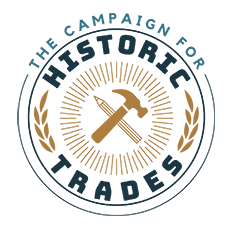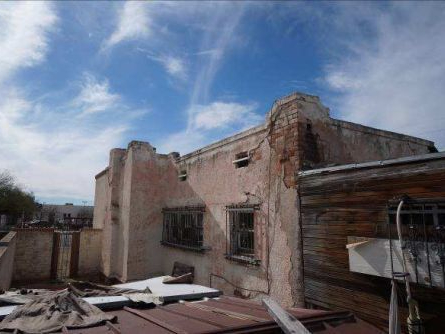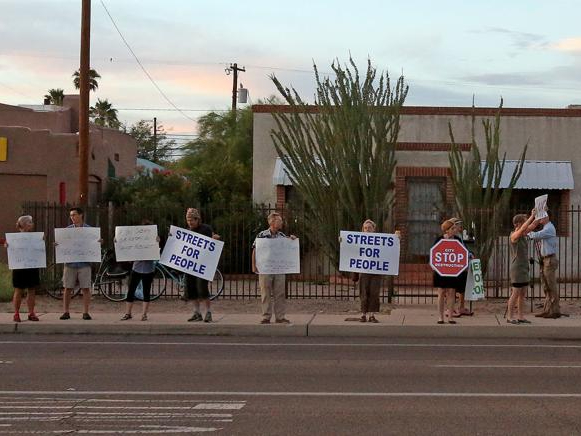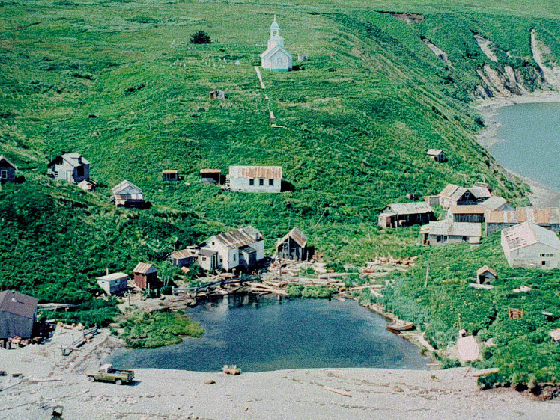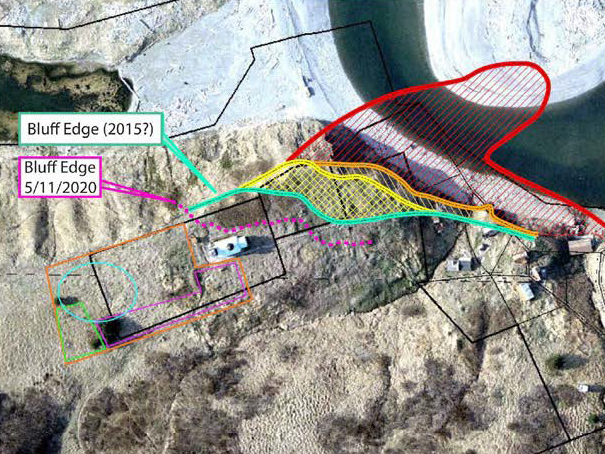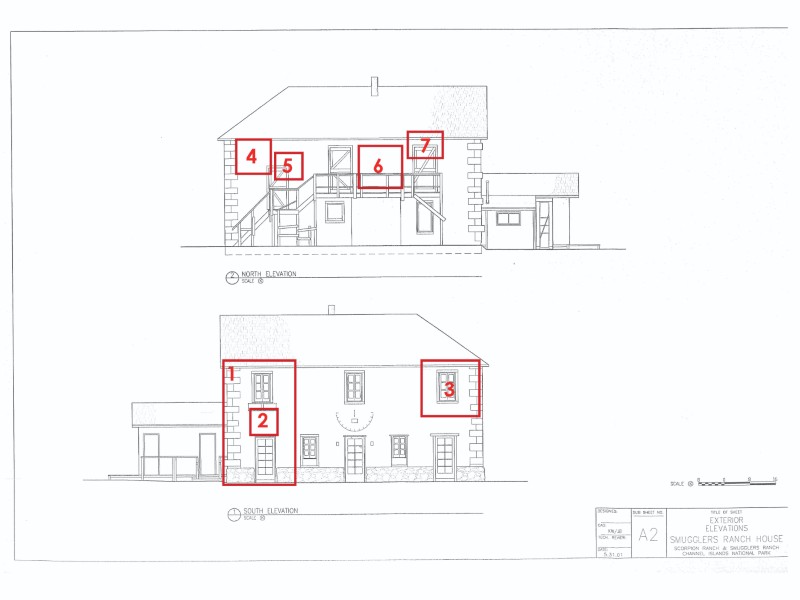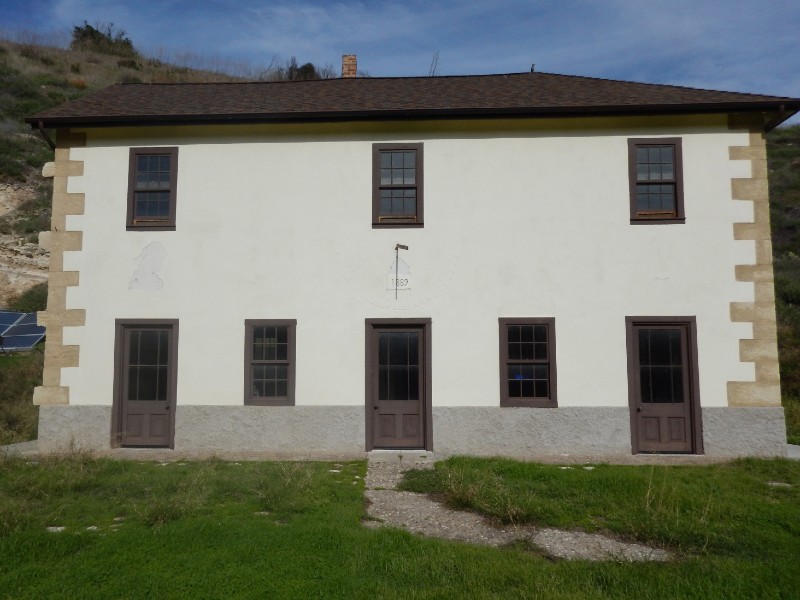The National Park Service, in partnership with Preservation Maryland, is pleased to announce the recipients of the inaugural Harrison Goodall Preservation Fellowship – three awards that will support innovation and professional growth in the field of historic preservation.
The Goodall Fellowship provides a short-term opportunity for individuals to pursue a unique self-directed project under the guidance of a mentor. Over 80 applications were received from across the country and were reviewed by the committee in Summer 2020. Each fellow will receive up to a $5,000 grant, be paired with a professional project mentor, and will be recognized for a distinguished achievement while creating original preservation training content, performing research, or enhancing leadership and management skills.
DEMOLITION BY NEGLECT IN ARIZONA
In addition to serving as the Deputy State Historic Preservation Officer in Phoenix, AZ, Christopher Cody seeks to tackle the most serious preservation challenge in Arizona: demolition-by-neglect. Historic structures are threatened by absent owners who do not provide the necessary maintenance to keep the property stable, thus requiring demolition. Many of these structures are within historic downtown areas. Cody’s goal is to research and develop model demolition-by-neglect ordinances for use across the state of Arizona, to produce supporting legal research for said ordinances, to identify legislative and legal barriers to their enactment, and develop a legislative advocacy plan if changes in state law are required.
Cody will combine his own experience as an attorney with that of his mentor, Will Cook, an attorney with Cultural Heritage Partners, LLP and a nationally recognized expert in historic preservation law concerning demolition-by-neglect ordinances, to produce a toolkit that includes model ordinances, legal research, and a legislative action plan. This project will greatly benefit local, state, and national preservation efforts for endangered historic structures.
CEMETERY IDENTIFICATION, ASSESSMENT, AND CONSULTATION GUIDANCE FOR THE STATE OF ALASKA
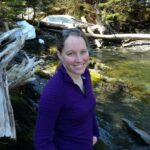 With more than 10 years of professional experience, Danielle Ellis currently works as an archaeologist for the Alaska Region of the Bureau of Indian Affairs while earning a Master’s of Arts in Anthropology. The rich history and heritage of Alaska includes a wide range of cemetery types in a variety of geographic settings. Changing environmental conditions and increased infrastructure development escalate the need to protect vulnerable cemeteries. Guidance for cemetery resources and protection challenges and is scarce, especially for Native Alaskan communities, a need Ellis will rectify as a fellowship recipient.
With more than 10 years of professional experience, Danielle Ellis currently works as an archaeologist for the Alaska Region of the Bureau of Indian Affairs while earning a Master’s of Arts in Anthropology. The rich history and heritage of Alaska includes a wide range of cemetery types in a variety of geographic settings. Changing environmental conditions and increased infrastructure development escalate the need to protect vulnerable cemeteries. Guidance for cemetery resources and protection challenges and is scarce, especially for Native Alaskan communities, a need Ellis will rectify as a fellowship recipient.
Through communication with her mentor, Shina DuVall, the Alaska Regional Archaeologist for the National Park Service, Ellis will create a document for formal guidance and best practices regarding the identification, assessment, and treatment of cemetery resources. Ellis’ project will also provide a framework for conducting consultation with community stakeholders. This guidance can be widely distributed and used across Alaska by multiple governmental, non-profit, religious, and non-governmental community organizations and partners to aid in project planning and decision making while ensuring responsible and respectful community consultation.
APPLICATION OF NON-DESTRUCTIVE TECHNOLOGY TO DOCUMENT SEISMIC DAMAGE ON HISTORIC ADOBE
 Sara Stratte completed her Master’s of Science in Historic Preservation in 2018 and currently works as the Exhibit Specialist for Restoration at Channel Islands National Park where a 2018 earthquake caused damage to an adobe structure built in 1889. The extent of the damage to this building and other structures like it cannot be fully explored without invasive or destructive techniques. Stratte will use the Smuggler’s Ranch, located on Santa Cruz Island, as a case study for non-destructive techniques to diagnose and document unseen deterioration conditions in adobe masonry.
Sara Stratte completed her Master’s of Science in Historic Preservation in 2018 and currently works as the Exhibit Specialist for Restoration at Channel Islands National Park where a 2018 earthquake caused damage to an adobe structure built in 1889. The extent of the damage to this building and other structures like it cannot be fully explored without invasive or destructive techniques. Stratte will use the Smuggler’s Ranch, located on Santa Cruz Island, as a case study for non-destructive techniques to diagnose and document unseen deterioration conditions in adobe masonry.
Stratte chose Michael Spencer as her mentor. Spencer is chair of the Department of Historic Preservation at the University of Mary Washington and specializes in the application on non-destructive technologies, such as infrared thermography diagnostics, to historic preservation projects. Stratte will develop protocols for using infrared thermography to adobe, contribute to preservation literature, and direct upcoming preservation repair work. Stratte’s findings will be shared with preservation professionals at various conferences as well as with the NPS as a resource for superintendents, resource managers, and facility managers.
About The Fellowship
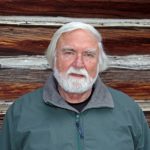 The Harrison Goodall Preservation Fellowship gives graduate students and enterprising professionals the opportunity to undertake a focused pursuit that makes a meaningful contribution to the field of historic preservation and support the stewardship of historic resources not only in the National Park Service but nationwide and at any level (e.g., other federal agencies, state and county parks, non-profit history museums, etc.).
The Harrison Goodall Preservation Fellowship gives graduate students and enterprising professionals the opportunity to undertake a focused pursuit that makes a meaningful contribution to the field of historic preservation and support the stewardship of historic resources not only in the National Park Service but nationwide and at any level (e.g., other federal agencies, state and county parks, non-profit history museums, etc.).
Often during the rigors of a preservation graduate program or while in professional employment, there aren’t opportunities to explore issues that can create a difference in the preservation field. The format of the fellowship program is flexible to encourage creativity and allow fellows to continue to study, work, or engage in other activities.
Inspired by a gift from Harrison Goodall and made possible by Preservation Maryland, this NPS partnership promotes innovation in the field of historic preservation by allowing outstanding preservationists to develop and conduct independent projects. Fellows not only make a contribution to the field of preservation but also grow professionally as a result of their interaction with a preservation mentor.
In the words of Harrison Goodall, “Preservation changed my life; I’d like to see it do the same for others.”
